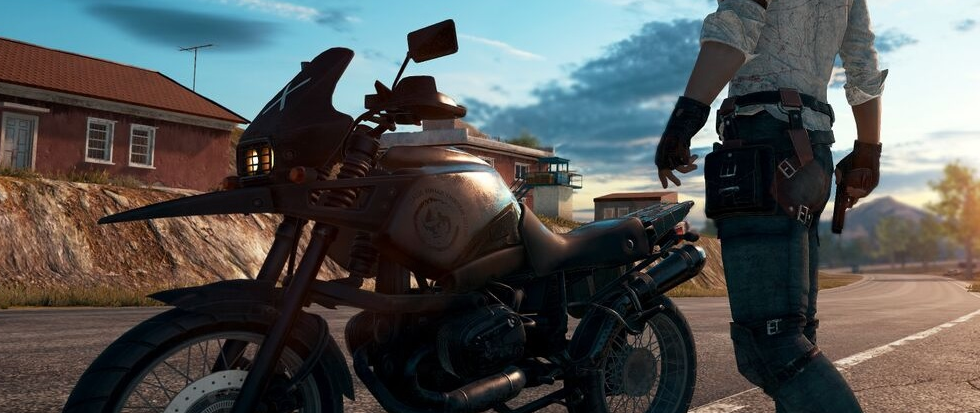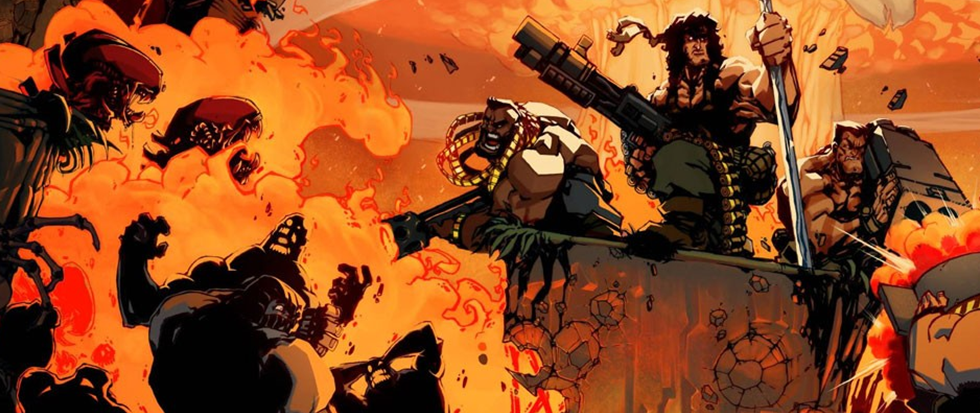
PUBG Convinced Me Games are the Future of TV
PlayerUnknown’s Battlegrounds might be my favorite game of the year.
Since the large scale deathmatch simulator hit Steam Early Access at the beginning of the Spring, I’ve spent more than 50 hours weighing strategies by studying the sole island map, and considering the benefits of each weapon. Like millions of others, I’ve formed my own opinions on how and when to execute a long range strategy versus getting up close and personal. I’ve watched a lone wolf ride to victory from behind the wheel of an off-road vehicle and seen crazy pileups in high traffic areas. This experience has proven special because of the unfolding stories it enables each user to be a part of, and there’s only one thing making me question my love for it.
I haven’t played one second of PlayerUnknown’s BattleGrounds.
It’s rare for me to spend time watching games livestreamed or lets-played on YouTube and Twitch, but the inherent theatrics of PUBG have me hooked. The same can’t be said about other highly-competitive shooters, and the few I’ve played give me no desire to watch someone else do it much better than I ever could. But seeing so many of my close friends and vague acquaintances, along with popular streamers, buzz so unabashedly abut PUBG had me curious.
When hearing a description of BattleGrounds, one might underestimate the strength of the core conceit. 100 players are dropped onto an island, with limited supplies to fend for their own, as they try to fight off both the competition and an ominous, shrinking field of play. It is, admittedly, not a premise that does very much new or inspires a thoughtful meditation on the madness of online gaming. But in execution, it removes all the noise of metas and ladders and compositions that plague other esport adjacent titles and focuses on something as inherently human as endurance.

Only a single player can come out on top in each match, but the structure of such repetitive, simple gameplay is designed in a way that learning from every failure is inevitable. The entire community has been built around repeated, violent acts meant to defend the conditions of an individual’s survival, calling comparisons to popular dystopian stories. It’s as if all the fallen students at the end of Battle Royale would be given a chance to reflect on their mistakes, or the tributes in the Hunger Games knew they could return next year to try and redeem themselves.
As a player, each participant is an active force of nature with the same prescribed chance to be another human being’s downfall. And as a viewer, we’re placed in the role of the removed proletariat, rooting for the brutality as our own form of entertainment. BattleGrounds can be comical and quirky, but is such a success because it speaks a universal language to anyone even fairly versed in competitive play. There’s you, and there’s ninety nine obstacles in the way of your goal. Push through these forces to earn the vindication of ‘Winner Winner, Chicken Dinner’ or task yourself to try until you do.
This investment in the story of a slowly shrinking pool of competitors sets the stakes for the audience. You can watch a friend wasting time or follow a squad of tactical role-players on a strict schedule, but tuning into PUBG rewards a simple, satisfying one-in-one hundred chance to be standing on the right side of a tense standoff.
Of course, the heightened stagecraft of streaming culture have elevated the performative aspects of PUBG, no doubt helping to make it the phenomenon it has become. Individuals form and break alliances, pull off dramatic plays, and chart their own underdog stories online for hours and hours every week, weaving a collective narrative that paints the titular PlayerUnknown as some shadowy figure pitting a massive portion of the gaming populous in a seemingly endless loop of barbarism.
Watching BattleGrounds became something of a daily occurrence for me, even in small, condensed quick looks. Every game is set within the same parameters, with the same conditions of play. Even if you don’t know who’s playing, you know their goals and the obstacles before them.

This is why PUBG feels to me more like live television drama than any sporting event. Though the rules are broadly defined and instantly recognizable, they may be the least interesting part of the match. It is the player, as a character, that becomes the most volatile aspect of tension. Because I know I am only seeing the world from behind the scope of one player, in a world with ninety-nine identical pieces moving around, I am participating marginally in the chaos of each round.
In the same year that Twin Peaks and The Leftovers left me in awe week after week by raising the bar of narrative excellence on mainstream television networks, one of my most valuable viewing experiences has been with PlayerUnknown’s BattleGrounds. It is the same story, told dozens of times over, while simultaneously it is one continuing story that grows and changes with the community as well as the mechanics of the game. PUBG doesn’t excite me as a piece of interactive media in the same way that Breath of the Wild or NieR: Automata do, but positions games to me in a new light, where the fun comes from being an outsider, and forming a bond with the spectacle on display.





